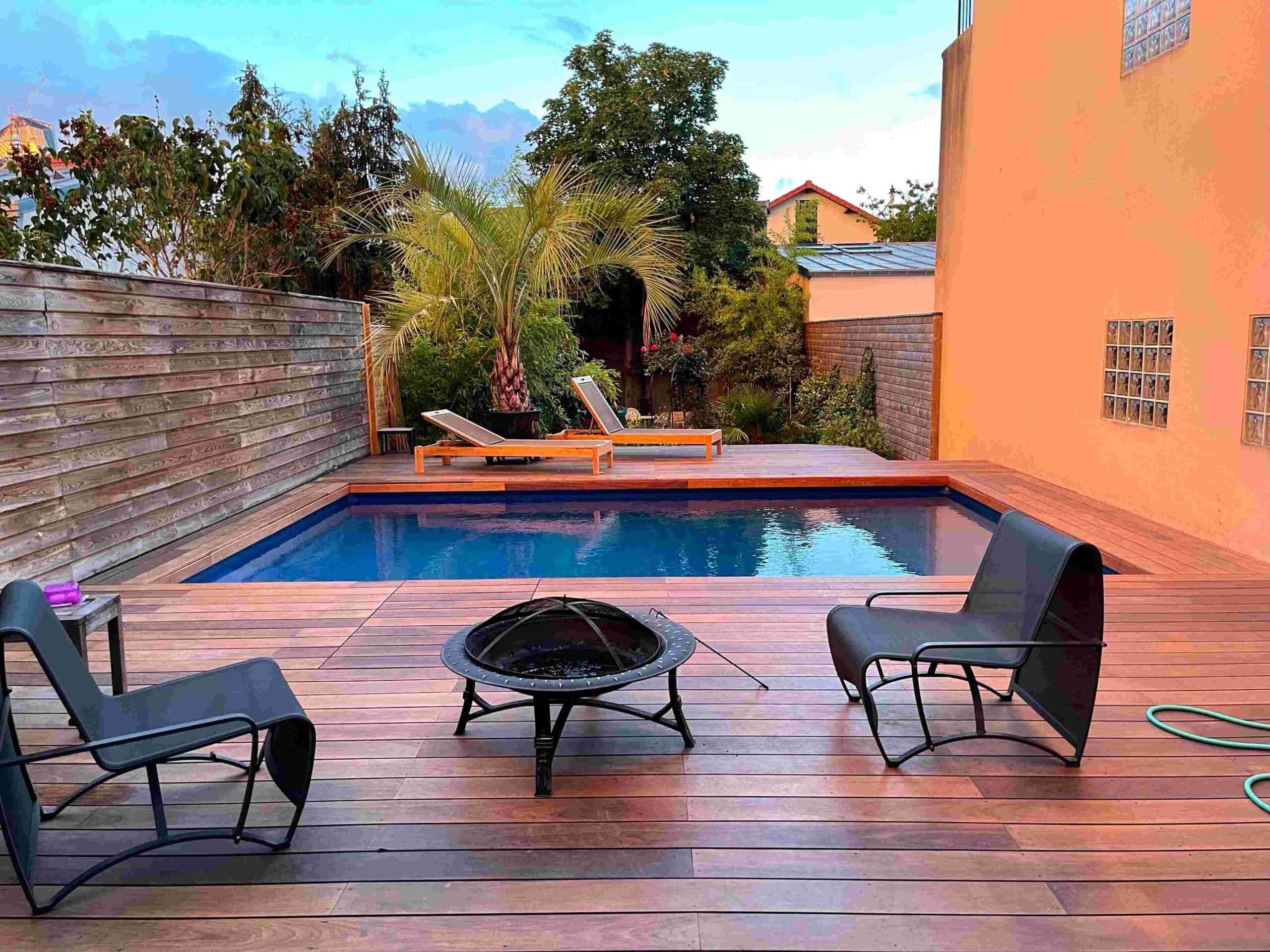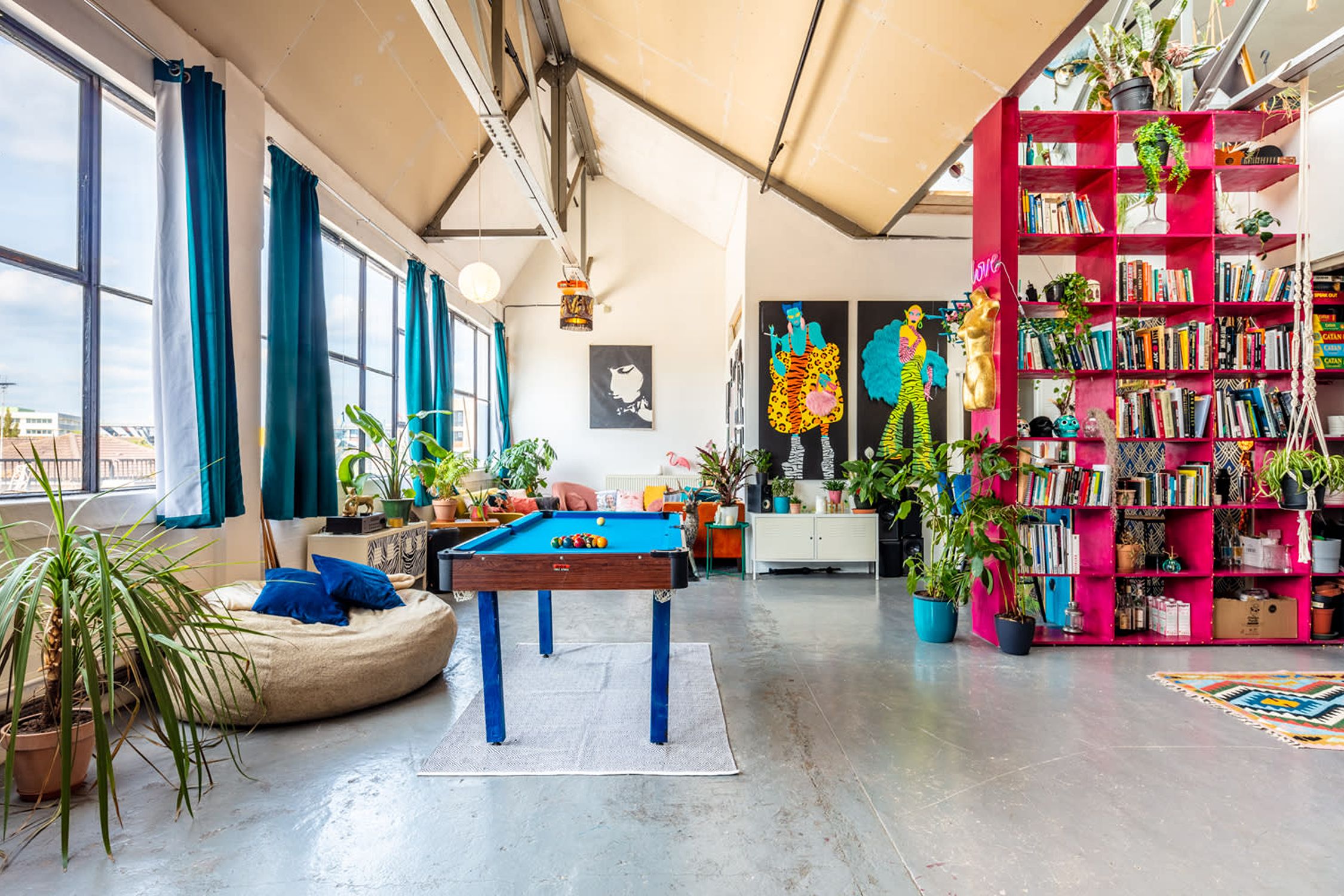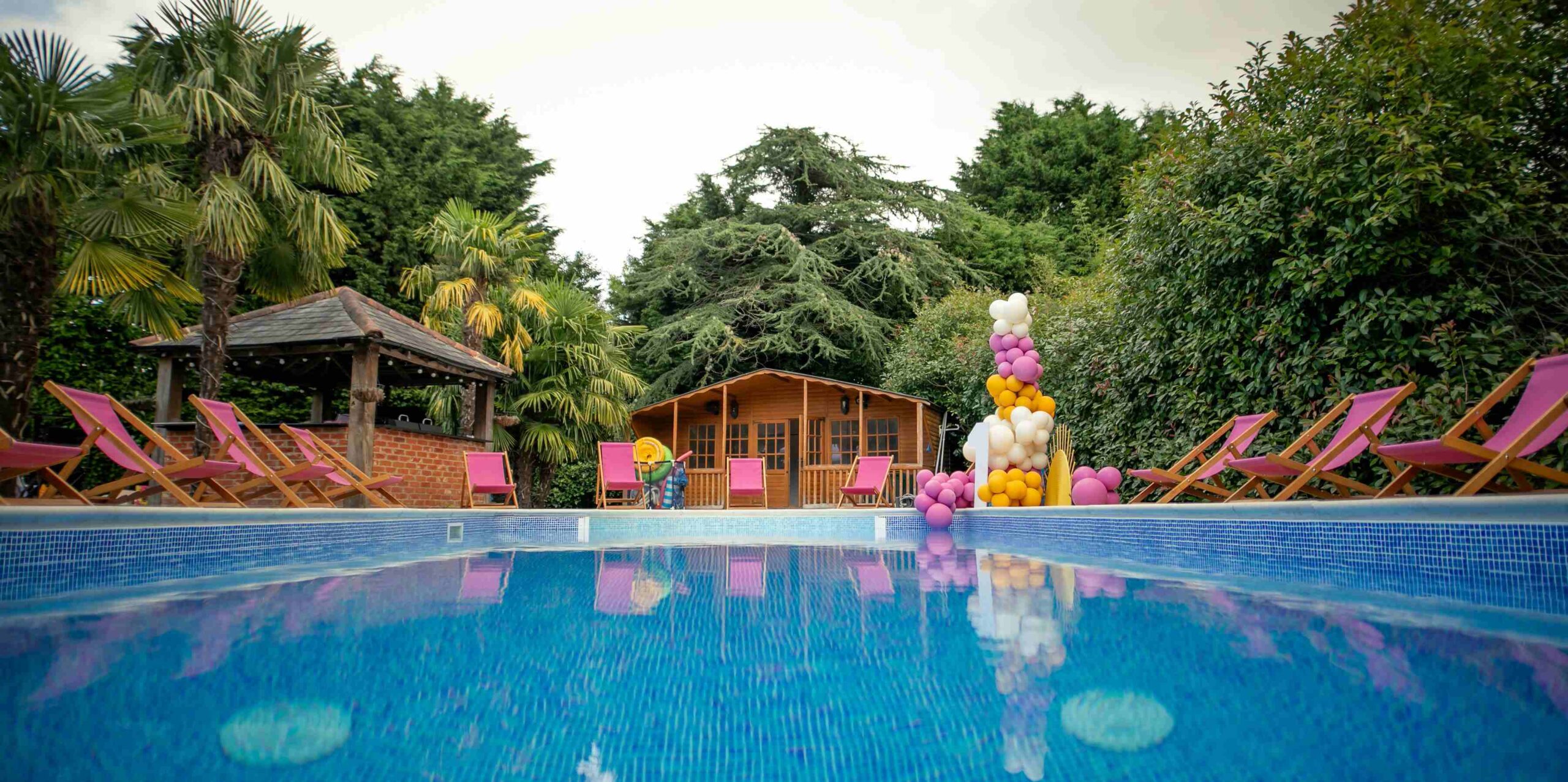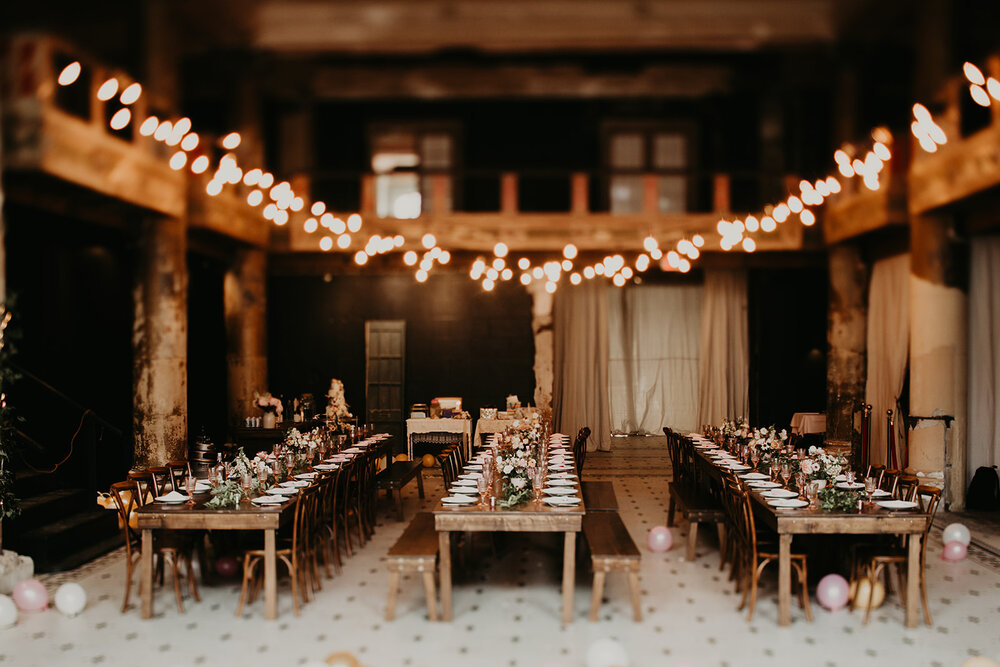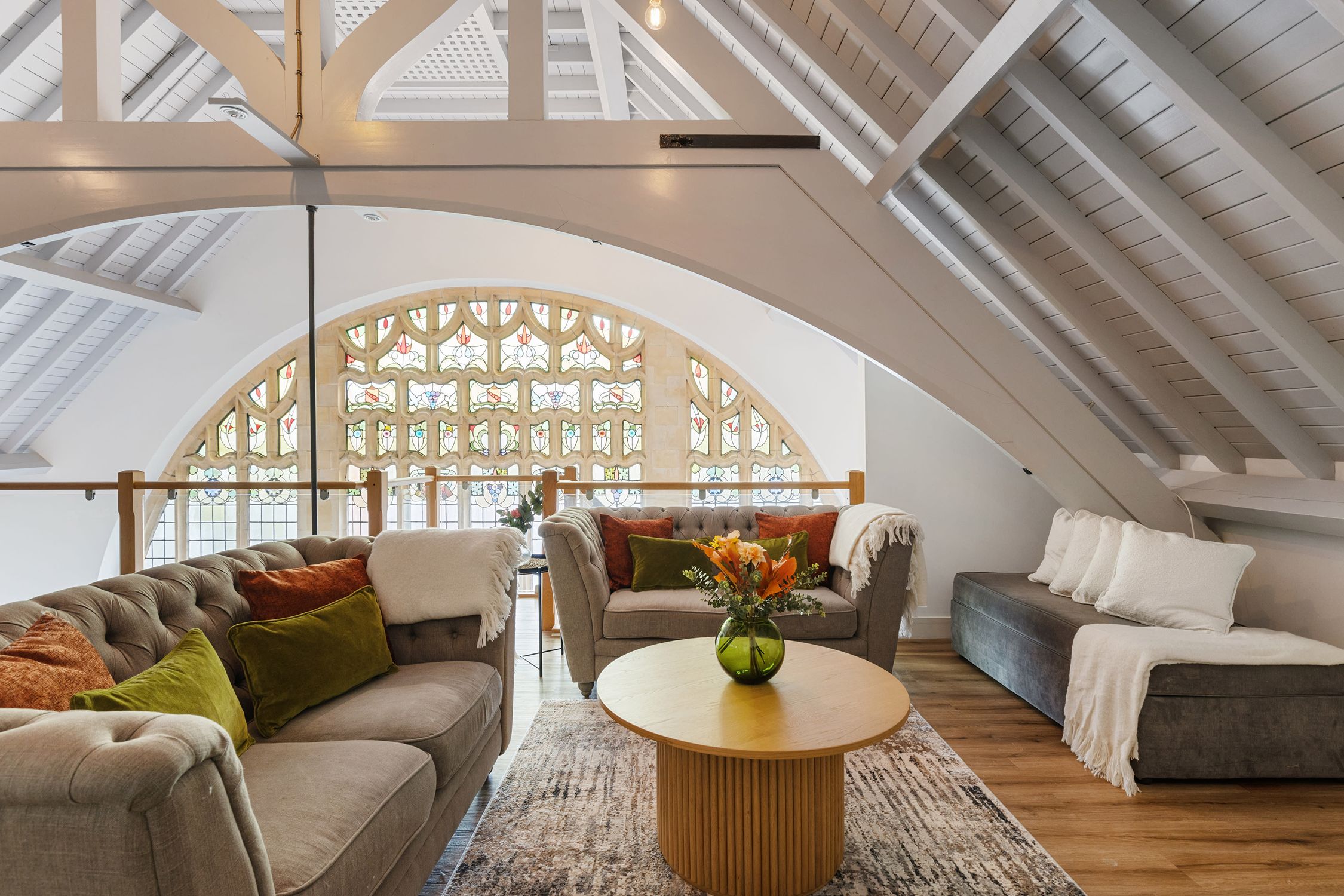
Source: Peerspace
Soaring vaulted ceilings. Light streaming through centuries-old stained glass. Stone walls oozing with history. Converted churches are undeniably magnetic—which is exactly why they’ve become sought-after spaces for events, such as weddings, product launches, photo shoots, art shows, and other creative gatherings.
If you’ve been searching for a converted church on Airbnb, you’ve probably discovered stunning spaces that are bookable as overnight accommodation. But here’s the problem: Airbnb’s party ban makes hiring these converted churches for events nearly impossible. Even a 20-person birthday party or intimate team workshop risks cancellation. The platform wasn’t designed for gatherings—and that mismatch creates chaos before you’ve even sent your first vendor email.
Pro Tip: Skip Airbnb’s restrictions entirely. Explore church venues to hire for events, with transparent hourly pricing and hosts who understand that “small celebration” isn’t code for “house party.”
Table of Contents
- Can you use Airbnb for events in a converted church?
- Where Airbnb falls short for events
- How to find a converted church venue for your event
- How much does it cost to hire a church space?
- Why Peerspace is the better alternative to Airbnb for events
- Final thoughts: making your converted church event happen
Can you use Airbnb for events in a converted church?
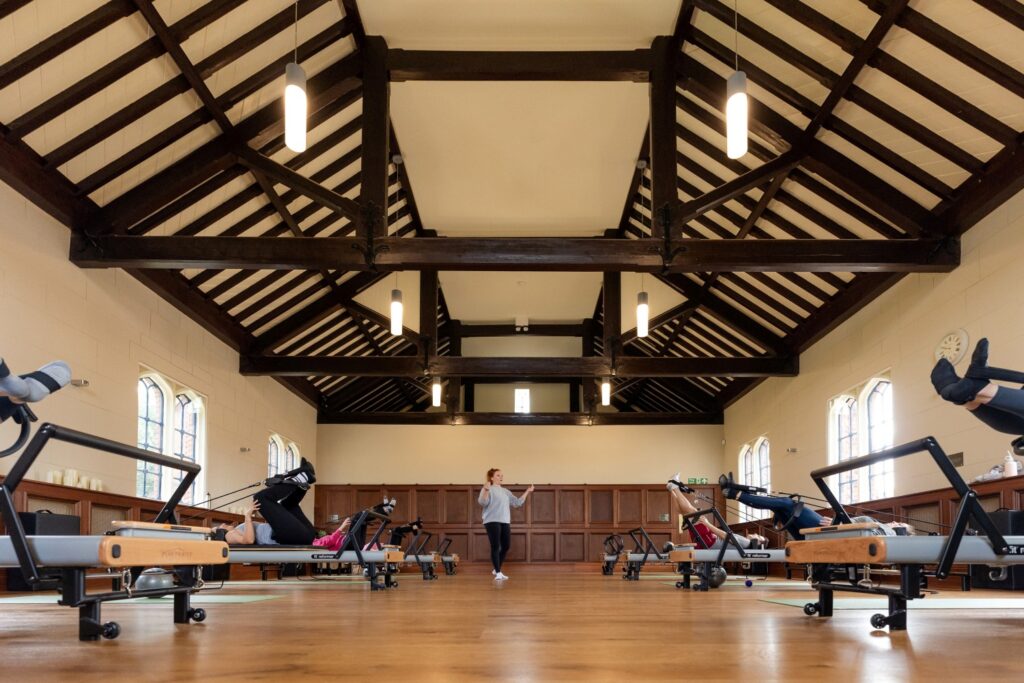
Quick Answer: No, you can’t use Airbnb for events in converted churches. Airbnb’s global party ban prohibits all events—including weddings, birthday parties, photoshoots, corporate off-sites, and team gatherings. Even small celebrations risk cancellation without refund.
Airbnb states: “Disruptive parties and events have always been prohibited, and our global party ban remains in effect permanently.” That word “events” isn’t just referring to ragers—it includes your milestone birthday celebration, Christmas party with colleagues, or team away-day.
Most converted church listings were created for people who want to sleep somewhere atmospheric—not production teams requiring vendor access through 400-year-old doorways, or companies wanting impressive venues for client events.
For broader context on navigating these restrictions, see our guide on Airbnb alternatives for events in London.
Where Airbnb falls short for church events
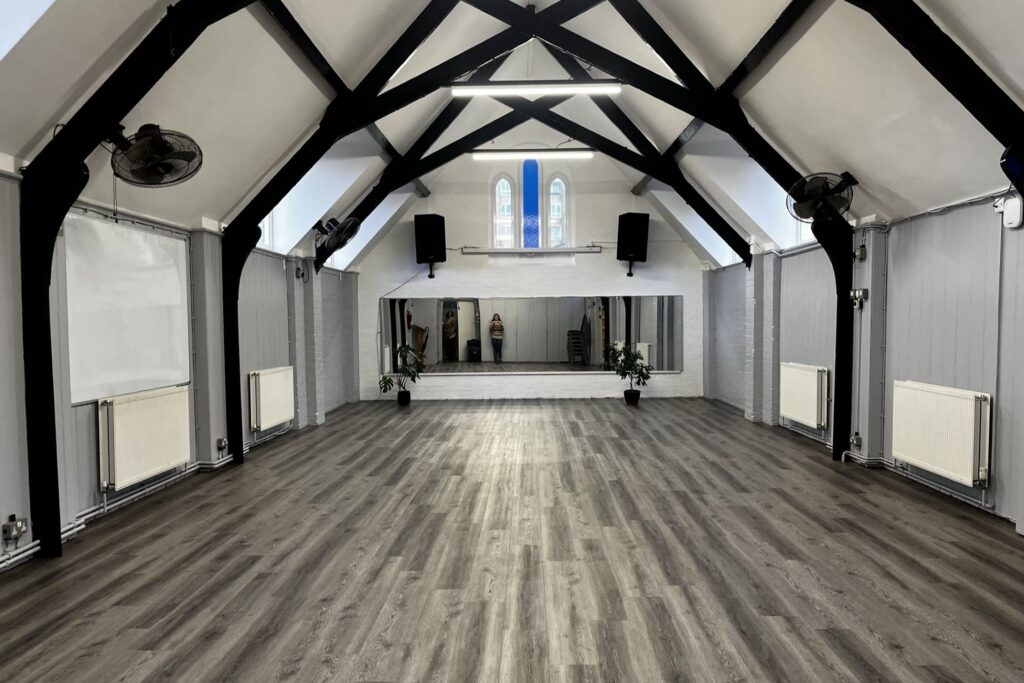
Converted churches are architectural puzzles with quirks that only reveal themselves when you actually try to host an event. Here’s where Airbnb’s model completely fails.
1. Airbnb’s party ban doesn’t negotiate
Even lovely hosts can’t override platform policy. Your booking exists in a precarious grey zone—whether you’re planning to hire the space for a wedding reception, team workshop, or birthday dinner.
Some people book without mentioning their plans, hoping to slip through. That rarely works. Between catering deliveries, photographers setting up equipment, or guests in party attire, your cover falls apart quickly. When hosts discover the truth, they can cancel without penalty—leaving you scrambling whilst your deposit evaporates. Guests also won’t receive refunds for cancelled bookings that breach the party ban policies.
2. Paying for 48 hours when you need four is unnecessary
Your event runs from 2pm to 6pm on Saturday, but Airbnb requires Friday and Saturday night bookings—roughly 48 hours of accommodation for four hours of event time.
If you’re looking for a micro-wedding venue that only lasts a few hours, why pay more than necessary? You don’t need beds—you need defined access time including setup and breakdown.
3. No site visits before committing
Want to check acoustics for your team presentation, measure ceiling height for photoshoot lighting rigs, or confirm that stained glass provides enough natural light for birthday party photos? Airbnb doesn’t permit pre-booking visits.
For overnight stays, trusting photos works fine. For events where every detail matters—from power socket locations for DJ equipment to floor surface for dancing—booking blind is genuinely risky. Imagine discovering on your party day that the “spacious open area” has a load-bearing pillar right where you planned the buffet table.
4. Hosts inexperienced with event logistics
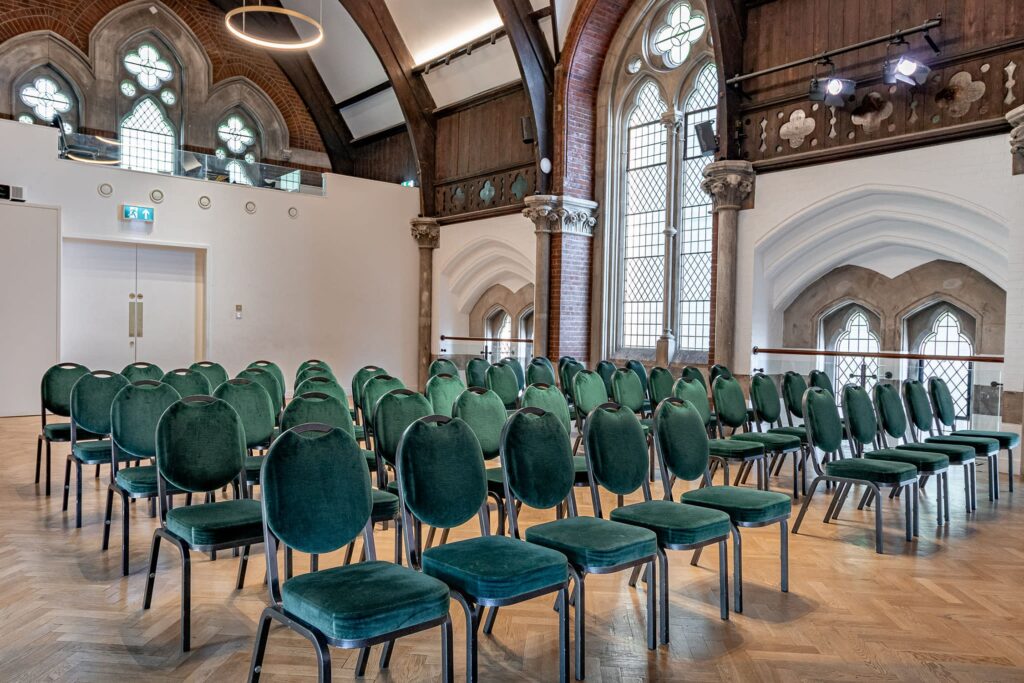
Most Airbnb hosts excel at hospitality: clean towels, restaurant recommendations, maybe some biscuits. What they’re not experienced with is coordinating catering deliveries for corporate events, troubleshooting sound systems for birthday party DJs, managing equipment loads for photoshoots, or explaining listed building restrictions on decorations.
For events in churches, you need hosts who understand vendor coordination, equipment requirements, and the unique challenges of historic buildings—not accommodation providers accustomed to tourists arriving with suitcases.
5. Vendor policies that appear from nowhere
Few things frustrate planners more than discovering—weeks before an event—that the host prohibits outside caterers for your company party, professional photographers for your birthday celebration, or any equipment requiring power for your team workshop.
Airbnb listings often have vague vendor policies because they weren’t written for events. For converted churches specifically, vendor access is essential. These buildings rarely have commercial kitchens for catering, almost always need supplemental lighting for photography or evening events, and frequently require external sound systems for speeches or entertainment.
6. Insurance gaps you can’t afford
Historic buildings with listed status carry inherent risks: uneven floors, narrow stairs, fragile original fixtures. If equipment damages 16th-century stonework during a photoshoot, a guest is injured at your birthday party, or something goes wrong during your team event, who’s liable?
Most Airbnb hosts don’t carry event insurance. The platform’s Host Protection Insurance excludes gatherings that violate the party ban. That leaves you personally liable—without professional coverage backing you up.
How to find a converted church venue for your event
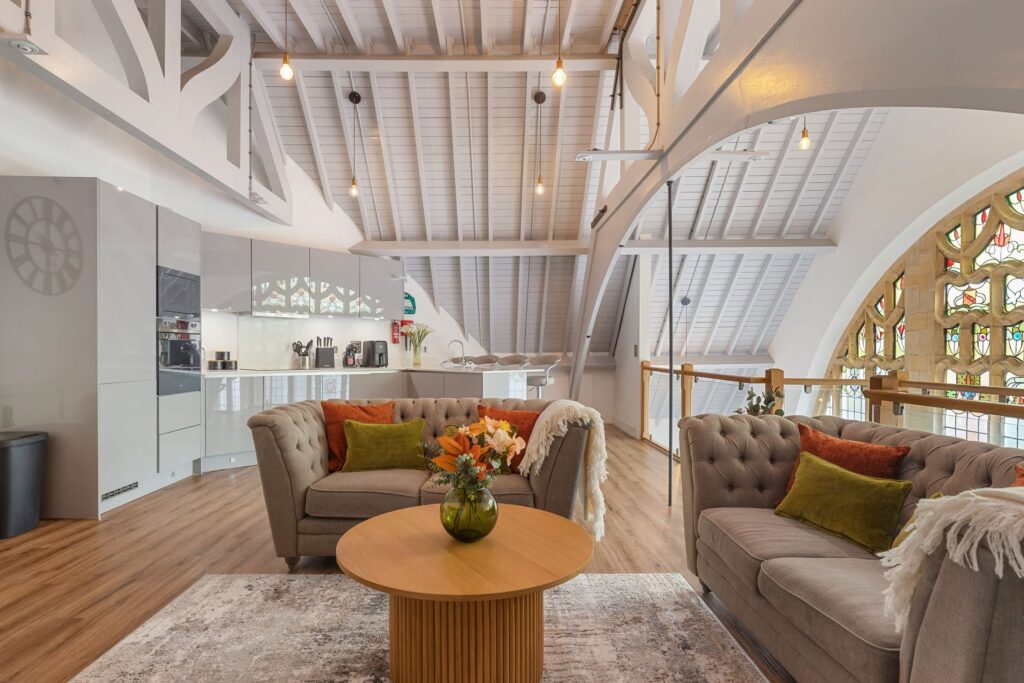
If Airbnb won’t work, here’s how to find converted or old church rentals designed for gatherings.
1. Match the aesthetic to your event type
Not all renovated or converted churches suit every event. Consider what atmosphere you actually need:
Gothic revival churches (pointed arches, dramatic height, ornate stone) work beautifully for:
- Traditional wedding ceremonies
- Classical music performances or recordings
- Atmospheric fashion shoots
- Brand events with a sophisticated, heritage aesthetic
Georgian chapels (symmetrical, lighter, airier) are ideal for:
- Intimate dinner parties or receptions
- Product launches with a refined vibe
- Corporate gatherings that need elegant surroundings
- Panel discussions or speaking events
Industrial conversions (exposed brick, contemporary fixtures, urban edge) suit:
- Modern brand activations
- Creative workshops or team offsites
- Music video shoots or content creation
- Launch parties with a contemporary feel
Rural stone churches (characterful, rustic, countryside settings) work for:
- Outdoor ceremony and reception combinations
- Wellness retreats or yoga events
- Creative residencies or photography workshops
- Nature-focused brand campaigns
Location matters too. London’s converted churches cluster in Shoreditch, Hackney, and Clerkenwell. Manchester, Bristol, and Edinburgh offer alternatives, often with easier parking and lower rates. For brands specifically, browse launch venues in London that include churches alongside other unique options.
Pro tip: Track potential venues in a spreadsheet with columns for capacity, hourly rate, included amenities, restrictions, and parking. This makes comparison infinitely easier.
2. Search across multiple platforms and sources
Different platforms serve different purposes—don’t limit yourself to just one.
- Event-specific platforms: hourly pricing and event-savvy hosts, though inventories might be smaller
- Historic venue agencies: heritage properties but often require minimum bookings and day-rate pricing
- Film location databases: photogenic spaces that aren’t always optimised for live events
- Direct enquiries: search “converted church events [your city]” for independent venues with flexible terms
- Wedding directories: focus primarily on ceremonies and receptions
When comparing, look past headline prices. Check what’s included, whether there’s on-site coordination, and what overtime costs.
3. Understand capacity for your specific use
Church capacity depends entirely on what you’re doing. Original layouts with fixed pews work brilliantly for ceremonies or presentations—less so for birthday parties where people need to mingle or team workshops requiring breakout spaces. Some conversions have removed pews entirely; others retain original features that limit flexibility.
Questions to ask:
- Seated capacity versus standing capacity for your event type?
- Can pews be moved, or are they fixed?
- Separate space for catering, birthday cake setup, or team breakout sessions?
- For photoshoots: where can crew stage equipment without disrupting shots?
- For corporate events: is there space for presentations and networking?
Always verify capacity for your specific setup—a church might hold 100 for a ceremony but only 60 for a seated dinner or 40 for a team workshop with tables. Get those numbers in writing before committing.
4. Investigate the practical details photos hide
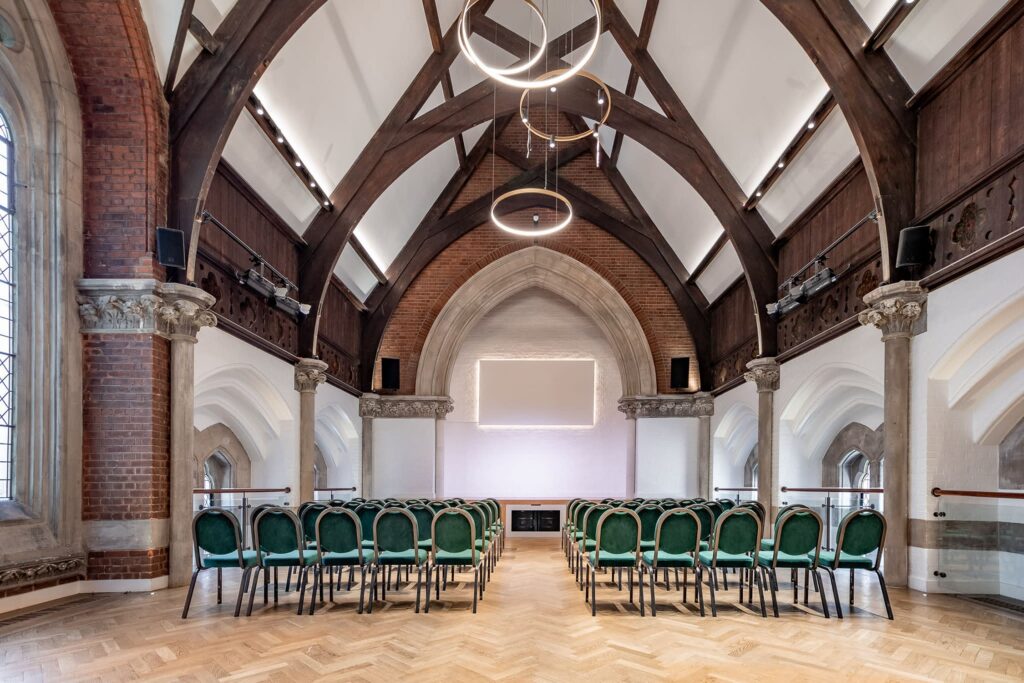
Acoustics: Stone walls create reverb—beautiful for live music at weddings, challenging for team presentations or birthday speeches. Ask about acoustic treatment and available sound equipment.
Climate control: Historic stone buildings are often cold. Confirm heating for winter events (especially Christmas parties) and ventilation for summer gatherings or photoshoots with hot lighting.
Accessibility: Many churches have steps, narrow doors, or spiral staircases. Verify access for guests with mobility needs and confirm loading access for catering equipment, birthday party supplies, or photoshoot gear.
Lighting: Stained glass reduces natural light levels. For daytime team workshops, birthday celebrations, or photography, ask about supplemental lighting availability and power capacity.
Facilities: Check toilet provision (historic buildings often have limited facilities), parking for team events or larger birthday parties, and loading access. City centre locations in Manchester or Edinburgh may have restrictions affecting guest arrival.
5. Decode listed building restrictions early
Many converted churches have Grade I or II listed status, restricting what you can do:
- What can be attached to walls (often: nothing)
- Whether original fixtures can be moved
- Fire safety limits on candles or guest numbers
- Temporary structures like staging or outdoor marquees
Venues experienced with events navigate these restrictions daily. If a space seems uncertain about regulations, that’s a red flag—these become your problems when something goes wrong.
6. Get vendor policies in writing
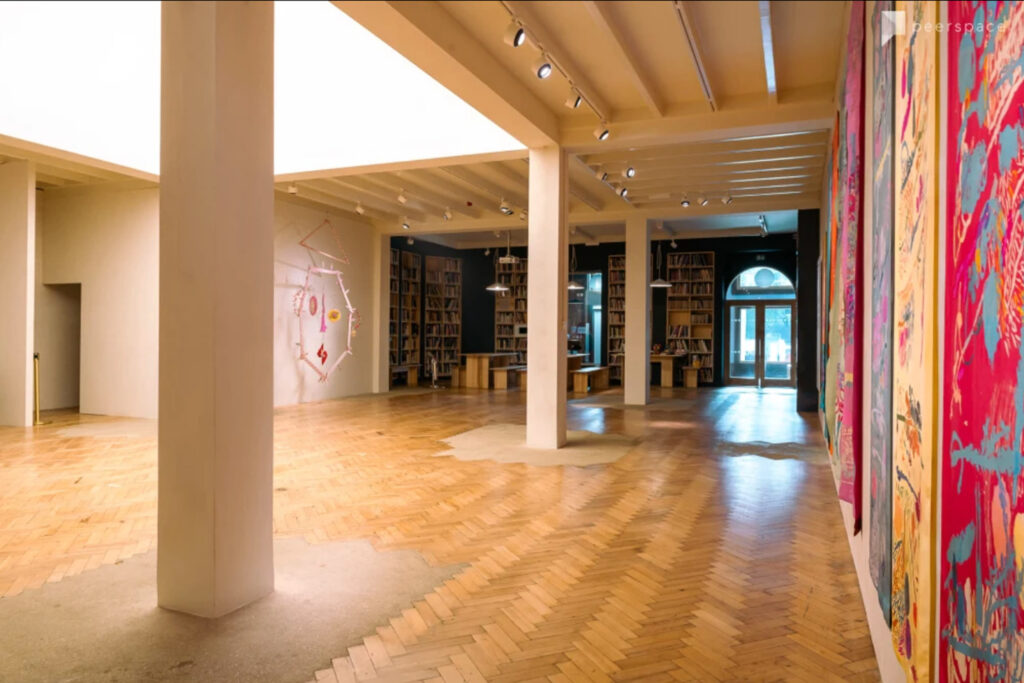
Before committing, clarify:
- Catering: Any caterer allowed, or preferred list? Kitchen access for birthday parties or corporate events? Equipment restrictions?
- Technical: Can you bring lighting for photoshoots, sound for birthday DJs, or AV for team presentations? Rigging points? Power capacity?
- Setup timing: How early can vendors or your team access the space for decorating or equipment setup?
- Coordination: Is someone on-site during your event to handle access or issues?
For converted churches specifically, ask about sound system availability, ceiling rigging restrictions for photoshoot lighting, policies on decorations or open flames, and whether loading equipment fits through doorways.
7. Visit before you commit
Site visits aren’t optional—they’re essential. Book visits at the same time of day your event will happen to assess light properly.
During visits:
- Walk the entire guest journey
- Test acoustics by speaking from key positions
- Take photos and measurements for layout planning
- Ask about contingencies (power failures, weather backup)
- Clarify what’s included versus what costs extra
Event-ready church venues on platforms like Peerspace typically encourage visits and can share examples of previous events in the space.
How much does it cost to hire a church space?
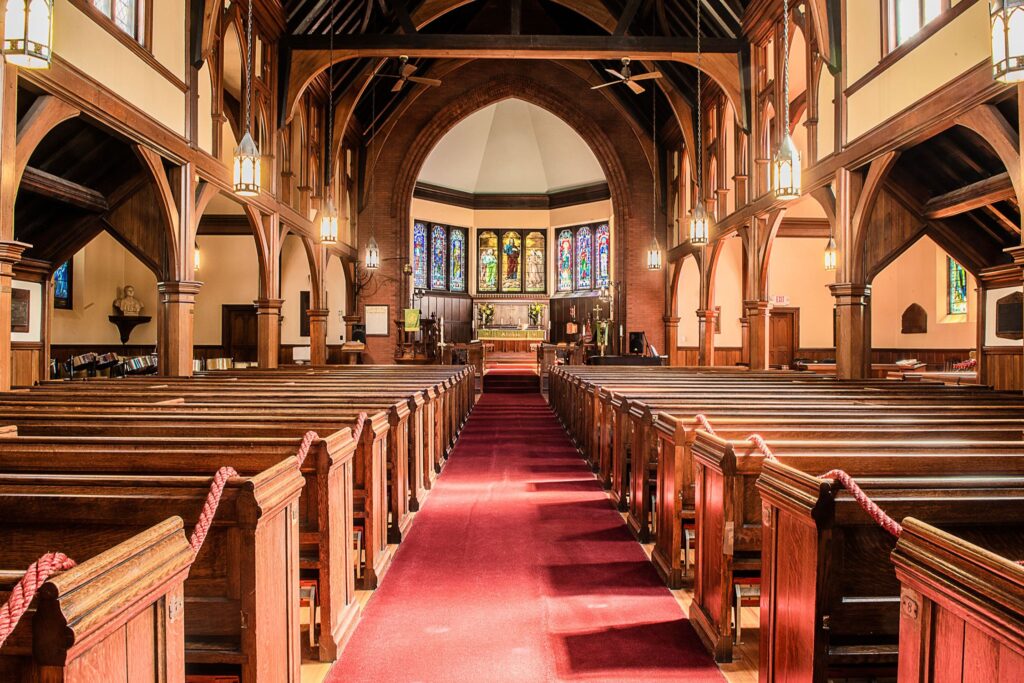
Quick Answer: Hiring a renovated or converted church space typically costs £80–£250 per hour, varying by location, capacity, and amenities.
Pricing ranges:
- Smaller chapels (20–40 capacity): £45–£150/hour
- Mid-size churches (40–100 capacity): £85–£250/hour
- Larger churches (100–200+ capacity): £200–£500/hour
1. Location drives pricing
Central London churches command £100–£400/hour. Comparable spaces in Manchester, Leeds, or Bristol often cost between £80–£180/hour. Churches with architectural significance (Grade I listed, design awards) usually charge premium rates regardless of size.
2. What’s included matters
Higher rates often include furniture, sound systems, lighting, kitchen access, on-site coordination, and climate control. Budget venues may offer just the space—meaning you arrange furniture hire, technical equipment, and vendor coordination yourself.
3. Event type affects cost
Some churches price differently:
- Private celebrations (birthdays, weddings): standard rate
- Commercial productions (photoshoots, video content): higher due to usage rights
- Corporate events (team workshops, Christmas parties): may include technical support
- Community gatherings: sometimes discounted
Always clarify which rate applies to your event.
4. Timing impacts price
Peak periods (Saturdays, April–September) command top rates. Discounts often available for:
- Weekday bookings (30-40% cheaper)
- Off-season dates (November–February)
- Morning or early afternoon slots
5. Additional costs to budget
- Security deposits: £250–£1,000 (refunded if no damage)
- Cleaning fees: £50–£150
- Overtime: £50–£150/hour if you run over
- Technical add-ons: specialist lighting or equipment
- Parking permits: particularly in city centres
Get the total cost—including all fees—confirmed in writing before signing.
Why Peerspace is the better alternative to Airbnb for events
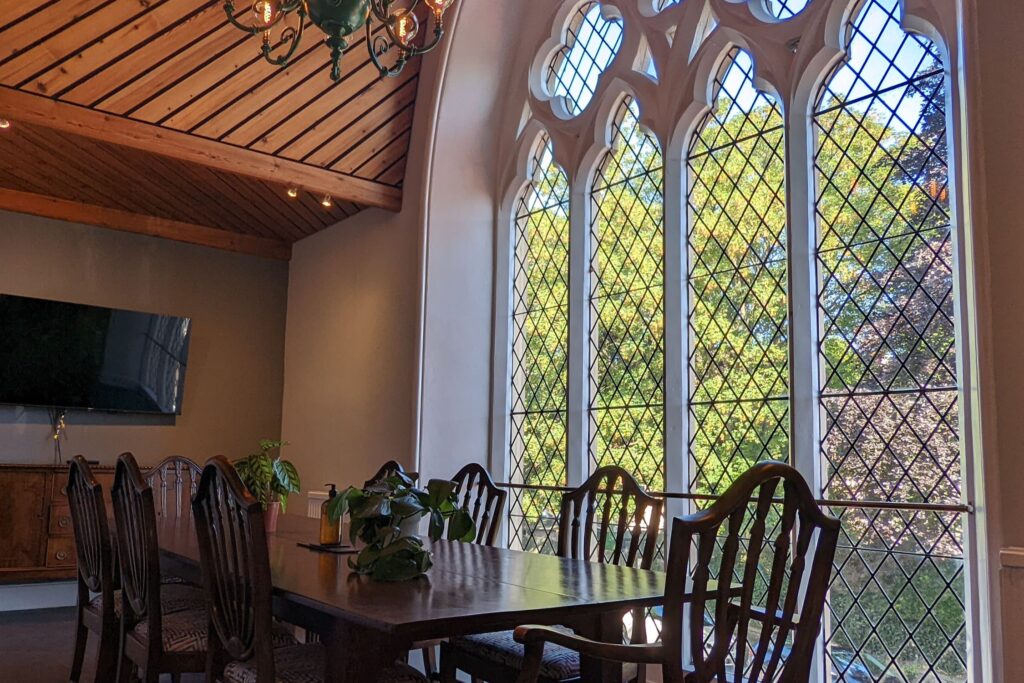
Airbnb revolutionised travel accommodation. It’s brilliant for sleeping somewhere interesting. For event planning? It’s the wrong tool entirely.
Peerspace was purpose-built for exactly this situation: people who want stunning venues for events without the restrictions, hidden costs, or last-minute cancellations that plague platforms designed for overnight stays.
1. Events are actually welcome
Every church on event platforms like Peerspace explicitly welcomes gatherings—whether that’s wedding receptions, birthday parties, team workshops, corporate Christmas parties, or photoshoots. No ambiguity, no nervous hosts. You can discuss plans openly—guest count, equipment, vendor lists—without worrying honesty will trigger an issue.
2. Hourly pricing makes sense
On Peerspace, you pay for the five hours you need, not 48 hours of accommodation you’ll never use. Rates include platform fees upfront, so you’re budgeting with accurate numbers.
3. Hosts understand event logistics
Peerspace hosts are professionals who’ve coordinated dozens of gatherings. For converted churches specifically, experienced hosts understand the nuances: where to position speakers for optimal acoustics, which walls can support installations or backdrops, how to manage lighting in high-ceiling spaces, what works for different event layouts, and how to navigate listed building restrictions for technical setups.
Many hosts can also recommend trusted local vendors—caterers who’ve worked in the space, production companies familiar with the technical capabilities, or coordinators who’ve successfully managed similar events in the venue.
4. Site visits are encouraged
Most Peerspace hosts actively want you to visit, test acoustics for your team presentation, check lighting for your photoshoot, and confirm fit before committing. For churches—where photos can’t convey how sound carries during birthday speeches or how light shifts throughout the day—walkthroughs are essential.
5. Transparent vendor policies
Every listing on Peerspace states vendor access rules, setup timing, technical capabilities, and restrictions upfront. For listed buildings, experienced hosts have already navigated heritage regulations.
6. Professional structure protects everyone
Good event platforms facilitate clear communication, document agreements, and provide support when issues arise. That structure matters when booking historic buildings with inherent complexities.
You should still carry event insurance (reputable venues require it), but the booking process reduces risk on both sides through clear documentation and expectations.
Final thoughts: making your converted church event happen
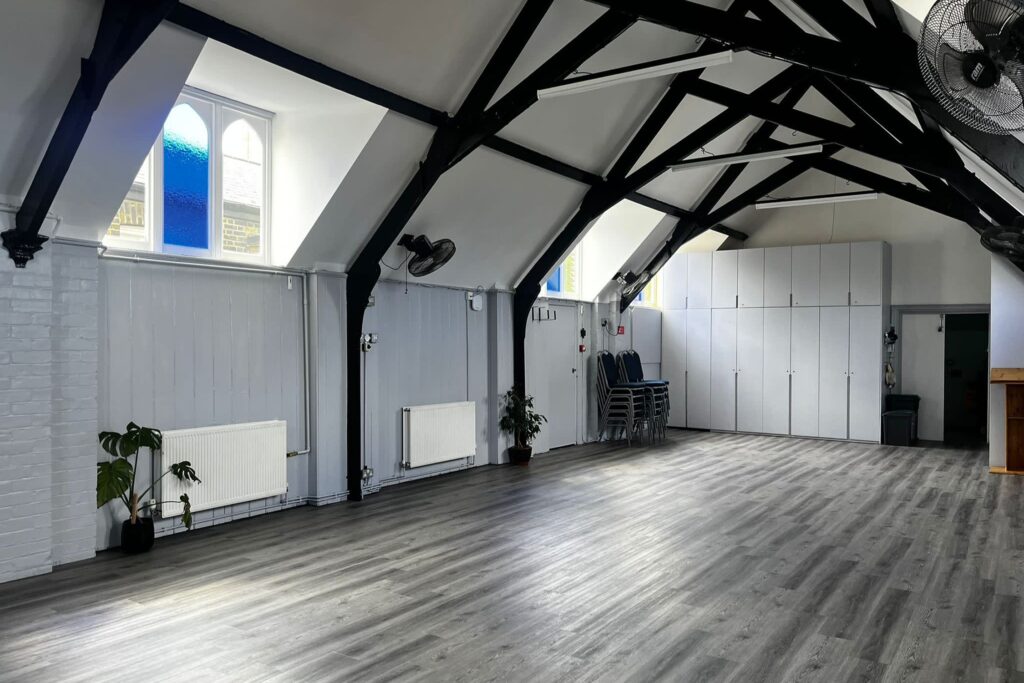
Converted churches aren’t just a perfect choice for wedding receptions—the dramatic architecture elevates any event. But securing the right venue requires platforms designed for events, hosts experienced with gatherings, transparent pricing, and clear policies—not workarounds and crossed fingers.
Airbnb excels at connecting travellers with interesting places to stay. Event planning isn’t its purpose. Rather than navigating policies written for different uses, choose platforms where gatherings are the entire point.
Browse church venues with transparent hourly pricing on Peerspace and event-experienced hosts—minus the policy gymnastics that make planning stressful instead of exciting.
Get together somewhere better
Book thousands of unique spaces directly from local hosts.
Explore SpacesShare your space and start earning
Join thousands of hosts renting their space for meetings, events, and photo shoots.
List Your Space



